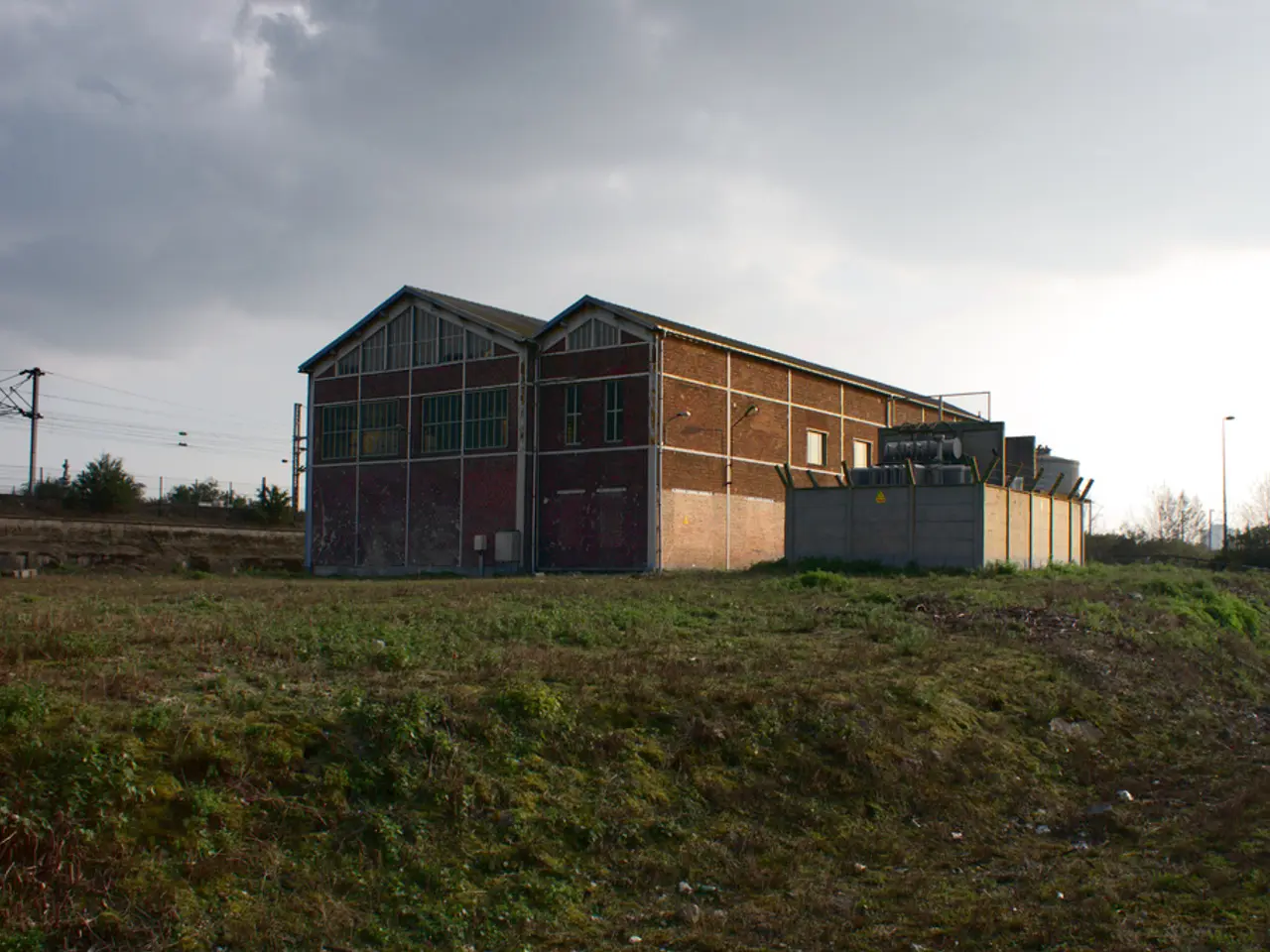Old and inefficient heating systems contributing to a surge in energy costs
In the face of rising energy costs and a growing number of households struggling with fuel poverty, heat pumps are emerging as a potential solution to lower heating bills and alleviate vulnerability to volatile gas prices.
According to a statement by Maya Fitchett, Policy Analyst, a disproportionate number of fuel-poor households rely on inefficient electric heating, making them particularly vulnerable to price increases [1]. The average fuel poverty gap for electrically heated EPC F and G properties stands at £1,823, while EPC D properties have an average gap of £341, and EPC E properties £1,028 [1].
Heat pumps, a highly efficient, low-carbon alternative to traditional fossil fuel heating systems, can help reduce heating costs for these households. By transferring heat rather than generating it through fuel combustion, heat pumps offer significantly lower operating costs compared to gas or oil boilers [1][5].
The UK government supports this transition with grants such as the Boiler Upgrade Scheme, which provides up to £7,500 towards installation costs, making heat pumps more affordable for low-income households [1][2]. Local authorities also focus on social housing and fuel-poor households to accelerate the clean heat transition, often requiring government funding to support installation programs that benefit vulnerable groups [3].
Low-carbon technology, such as heat pumps, can help households significantly reduce energy costs when installed alongside appropriate insulation measures [4]. This is crucial for fuel-poor households that spend a high proportion of their income on heating [1][5].
In addition, heat pumps produce much less CO2 than fossil fuel systems, aligning with the UK’s net zero targets and reducing environmental impact [1][2]. The government's Warm Homes: Social Housing Fund can also help landlords improve energy systems and boost efficiency [2].
This winter, an estimated six million households across the UK are living in fuel poverty, unable to heat and power their homes [6]. Some households that are reliant on electricity for most of their energy needs do not heat their home at all due to price increases [1]. Approximately a quarter of UK homes with electric heating are considered 'fuel poor' [7].
The average electrically heated household in Britain pays £2,500 per year for energy, which is significantly higher than the £1,717 typically paid by dual fuel households [8]. With the additional increases resulting from Ofgem's price cap, customers who are reliant on electricity for most of their energy needs will face approximately £70 more compared to Direct Debit customers [9].
As the trend towards properties that avoid plastics continues, heat pumps can potentially solve the current copper shortage, given their increasing demand for copper components [10].
For those seeking more information on significant energy issues, we recommend visiting our sister title site, Environment Journal [11].
[1] [https://www.gov.uk/government/publications/boiler-upgrade-scheme-guidelines-for-participating-manufacturers/boiler-upgrade-scheme-guidelines-for-participating-manufacturers] [2] [https://www.gov.uk/government/publications/warm-homes-social-housing-fund-guidance-for-social-landlords/warm-homes-social-housing-fund-guidance-for-social-landlords] [3] [https://www.gov.uk/government/publications/local-authority-heat-networks-fund-guidance-for-local-authorities/local-authority-heat-networks-fund-guidance-for-local-authorities] [4] [https://www.gov.uk/government/publications/energy-efficiency-private-rented-property-minimum-energy-efficiency-standards-mees/energy-efficiency-private-rented-property-minimum-energy-efficiency-standards-mees] [5] [https://www.energysavingtrust.org.uk/sites/default/files/2021-05/Heat%20pump%20report%20-%20Energy%20Saving%20Trust.pdf] [6] [https://www.gov.uk/government/news/six-million-uk-households-living-in-fuel-poverty] [7] [https://www.gov.uk/government/publications/fuel-poverty-statistics-2021/fuel-poverty-statistics-2021] [8] [https://www.gov.uk/government/publications/energy-bill-guarantee-scheme-guidance-for-participating-suppliers/energy-bill-guarantee-scheme-guidance-for-participating-suppliers] [9] [https://www.ofgem.gov.uk/publications-and-updates/energy-price-cap-determination-2023-24] [10] [https://www.bloomberg.com/news/articles/2021-06-10/copper-shortage-may-be-easing-but-it-s-still-a-big-problem] [11] [https://www.environmentjournal.uk/]
- With the UK government offering grants like the Boiler Upgrade Scheme for heat pump installation, there's a possibility for the housing industry, particularly in social housing and fuel-poor households, to transition to this low-carbon technology, contributing to the nation's net zero targets.
- In the realm of environmental science, heat pumps, with their ability to transfer heat rather than generate it through fuel combustion, result in significantly lower operating costs compared to traditional fossil fuel heating systems, making them appealing for households striving to manage rising energy costs.
- Given the increasing demand for heat pumps in heating and cooling systems, there could be potential benefits for the finance industry, as these devices require copper components that could solve the current copper shortage.
- The health-and-wellness and fitness-and-exercise sectors, focusing on personal well-being, can also reap benefits from heat pumps, as they contribute to creating comfortable, energy-efficient living spaces that help people stay committed to healthier lifestyles.




